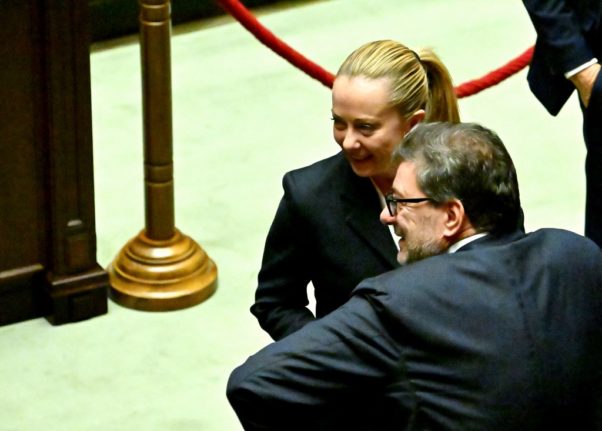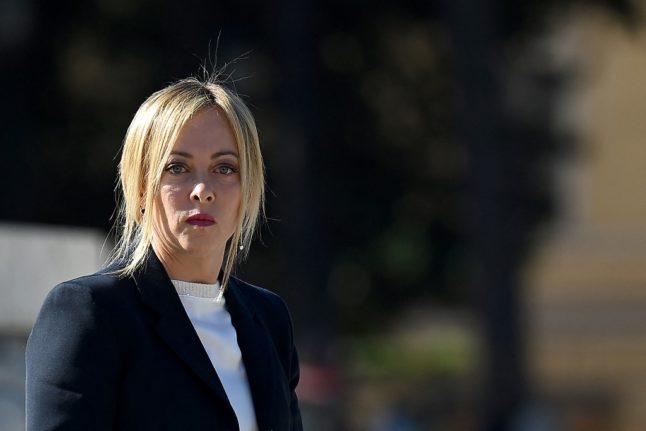Italy posted better-than-expected quarterly growth on Monday, a surprise bump for new Prime Minister Giorgia Meloni that staves off recession for now.
In its third quarter, gross domestic product (GDP) grew by 0.5 percent over the second quarter, compared to the expected slight decline.
READ ALSO: Italian government seeks to raise cash payment limit ‘to help the poor’
Nicola Nobile of Oxford Economics told AFP it was due to a surge in “household consumption, especially in services such as tourism”.
“But like other countries in the eurozone, Italy should enter a recession this winter in a context of rising interest rates and inflation,” he said.
The news comes at the right time for Meloni, whose first budget is due before the European Commission by the end of November.
On her first visit to Brussels on Thursday, where she will be received by European Commission President Ursula von der Leyen, Meloni is expected to pledge her willingness to curb deficits while maintaining the costly election promises of her right-wing coalition.
READ ALSO: Five key points from Meloni’s first speech as new Italian PM
The balancing act for Italy – the biggest beneficiary of the EU’s Covid recovery fund – comes against a global backdrop of rising interest rates, record inflation, the energy crisis and the war in Ukraine.
During the election campaign, Meloni repeatedly pledged not to increase Italy’s huge public deficit.
Still, while the previous Draghi government forecast a public deficit of 3.4 percent of GDP next year, Giorgia Meloni plans to increase that.
According to the Italian press, she is aiming for a deficit of 4.5 percent, or an additional 21 billion euros ($21 billion) to be financed by debt.
A large part of the budget is expected to be devoted to further measures aimed at mitigating soaring energy prices for businesses and households, though the new government hasn’t yet laid out what these will look like.

At the helm is Economy Minister Giancarlo Giorgetti, who served as economic development minister under Draghi and is considered one of the more moderate members of Matteo Salvini’s far-right League party.
The coalition’s flagship measure – extending a 15 percent flat tax for the self-employed to those with annual incomes of 100,000 euros, instead of the current 65,000 – could be limited at first and then extended to other incomes.
READ ALSO: Who is new Italian economy minister Giorgetti and what is he planning to do?
Funds must also be made available to lower the retirement age, which, in the absence of new measures, would automatically rise from 64 to 67 in 2023, as provided for in a 2011 reform.
Salvini has proposed recovering one billion euros with a six-month hiatus in Italy’s controversial basic income — a minimum payment which goes to Italy’s poorest, including the unemployed, those who cannot work because of disabilities or retirees who live under a basic income level.
Salvini’s contentious proposal to save cash is to stop payments to an estimated 900,000 people who are deemed capable of working but are unemployed.
But the last word will go to Giorgia Meloni.
The challenge for the premier will be “to ensure the support of the League, while neutralising in part its leader” Salvini, who could undermine the “serious image” Meloni wants to put forward, said Credit Agricole analyst Sofia Tozy.



 Please whitelist us to continue reading.
Please whitelist us to continue reading.
Member comments